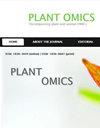Expression analysis of host defense responses against the 8K (KDa) cysteine-rich viral silencing suppressor protein in Nicotiana benthamiana
Q3 Agricultural and Biological Sciences
引用次数: 0
Abstract
Potato mop-top virus (PMTV) encodes the 8K cysteine-rich viral suppressor of RNA silencing. To gain an insight into N. benthamiana defense mechanisms against 8K suppressor protein, we expressed two 8K suppressors from Peruvian isolates in Nicotiana benthamiana and assessed the expression of its defense genes involved in autophagy (ATG6, ATG2 and ATG7, AGO1), salicylic acid (SA) (ICS1, NPR1 and PR1) and jasmonic acid (JA) (OPR3, COI1 and PDF1.2) pathways. To do this, the 8K cDNAs of two Peruvian PMTV isolates were cloned in pGWB17 vector with a C-terminal myc tag and N-terminal 35S promoter using Gateway technology. Agrobacterium cultures harboring PMTV 8K were syringe infiltrated into the abaxial side of N. benthamiana leaves. The expression levels of defense genes were examined in N. benthamiana leaves infiltrated with P1 8K, P11 8K and the control constructs at 2 and 5 days post infiltration in response to PMTV 8Ks using q-PCR technique. Our results showed that the expression levels of ATG6, ATG2, ATG7, ICS1, OPR3, NPR1, PR1, COI1 and PDF1.2 were increased in response to both 8K suppressors. However, the transcript level of Argonaute1 (AGO1) was decreased in response to both 8K suppressors compared with the control. These results indicated that 8K suppressor proteins can alter the expression of autophagy, SA and JA signaling pathway genes in N. benthamiana. Taken together, it seems that despite the 8K role in virus pathogenicity, it can also induce host defense responses to modulate plant-virus interactions and fine-tune host-virus coexistence.宿主对富8K (KDa)半胱氨酸病毒沉默抑制蛋白的防御反应分析
马铃薯拖把头病毒(PMTV)编码富含8K半胱氨酸的RNA沉默病毒抑制因子。为了深入了解本氏烟草对8K抑制蛋白的防御机制,我们在本氏烟草中表达了来自秘鲁分离株的两种8K抑制剂,并评估了其参与自噬(ATG6、ATG2和ATG7,AGO1)、水杨酸(SA)(ICS1、NPR1和PR1)和茉莉酸(JA)(OPR3、COI1和PDF1.2)途径的防御基因的表达。为此,使用Gateway技术将两个秘鲁PMTV分离株的8K cDNA克隆到具有C末端myc标签和N末端35S启动子的pGWB17载体中。将携带PMTV8K的农杆菌培养物注射器渗透到本氏N.benthamiana叶片的背面。用q-PCR技术检测了用P1 8K、P11 8K和对照构建体渗透的本氏N.benthamiana叶片在渗透后2和5天对PMTV 8Ks的防御基因表达水平。我们的结果表明,ATG6、ATG2、ATG7、ICS1、OPR3、NPR1、PR1、COI1和PDF1.2的表达水平在对这两种8K抑制剂的反应中增加。然而,与对照相比,Argonaut1(AGO1)的转录水平在对两种8K抑制剂的反应中降低。这些结果表明,8K抑制蛋白可以改变本氏猪笼草自噬、SA和JA信号通路基因的表达。总之,尽管8K在病毒致病性中发挥作用,但它似乎也可以诱导宿主防御反应,调节植物与病毒的相互作用,并微调宿主与病毒的共存。
本文章由计算机程序翻译,如有差异,请以英文原文为准。
求助全文
约1分钟内获得全文
求助全文
来源期刊

Plant Omics
生物-植物科学
CiteScore
1.30
自引率
0.00%
发文量
0
审稿时长
6 months
期刊介绍:
Plant OMICS is an international, peer-reviewed publication that gathers and disseminates fundamental and applied knowledge in almost all area of molecular plant and animal biology, particularly OMICS-es including:
Coverage extends to the most corners of plant and animal biology, including molecular biology, genetics, functional and non-functional molecular breeding and physiology, developmental biology, and new technologies such as vaccines. This journal also covers the combination of many areas of molecular plant and animal biology. Plant Omics is also exteremely interested in molecular aspects of stress biology in plants and animals, including molecular physiology.
 求助内容:
求助内容: 应助结果提醒方式:
应助结果提醒方式:


